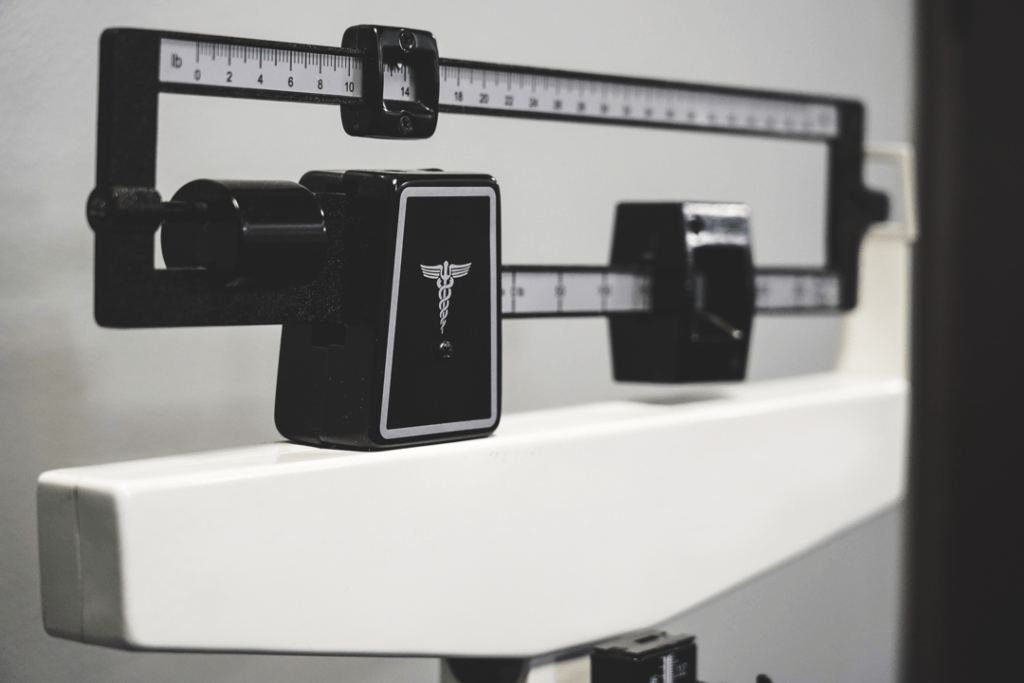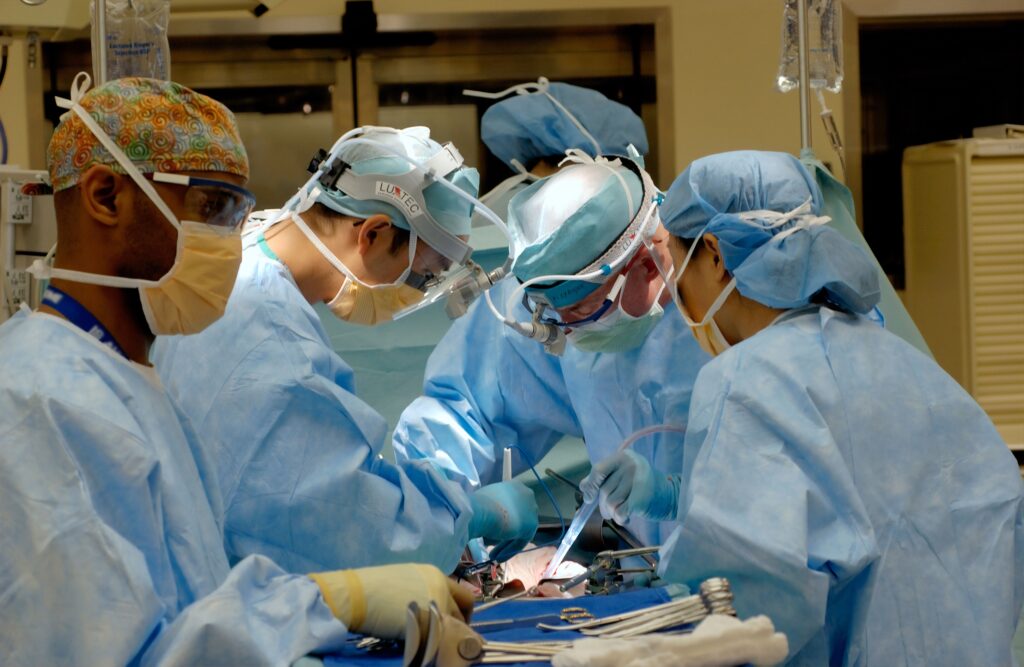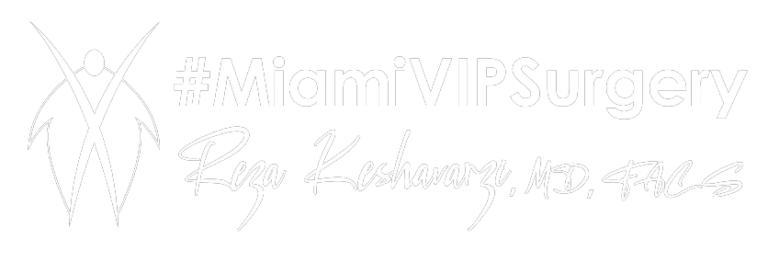Diet Plans
Diet Plans
Take our bariatric quiz to see if you qualify.

Sleeve Diet Plans
The Miami VIP Surgery team has composed a dietary plan for patients undergoing our Easy-Step Sleeve Program™ to help them achieve optimal results. Our staff will be with you each step of the way to help you achieve your weight loss goals and ensure your recovery process is as smooth as possible. We typically recommend patients take an acid-blocking medication for at least the first 12 weeks after their surgery to reduce the risk of ulcers. Depending on the patient, we may also recommend other supplements or multivitamins be added into your post-procedure diet. All medications and supplements need to be discussed with your surgeon as some may not be good to take prior to surgery or during your healing process.
Contact our office in Miami today to schedule a consultation or for more information about our Easy-Step Sleeve Program™ dietary plan!
Dietary Plan
Liquid Diet
In order to maximize the effectiveness of your Easy-Step Sleeve Program™ and ensure a successful surgery, we recommend patients go on a full liquid diet one (need to lose 50 pounds or less) to two (need to lose more than 50 pounds total) weeks prior to their procedure. We typically recommend patients try to lose between 5 and 15 pounds prior to their surgery to increase the effectiveness of the procedure. The more weight that is lost prior to a gastric sleeve surgery, the better the results will be post procedure.
Recommended Foods
- Protein Shakes (Example: Premier Protein)
- Unsweetened Almond, Coconut, or Cashew milk (less than 3 gms of sugar per serving)
- Vegetable juice
- Soups (blend before eating and remove any chunks of solid food)
- Sugar-free beverages (Example: Sugar Free Gatorade with or without Protein, Crystal Light, NO FRUIT JUICE)
- Sugar-free gelatin
- Sugar-free popsicles
- Broth (Example: Ginger Miso Broth from TJ’s, InstaBroth from Amazon)
- Water
Clear Liquids Only / No Protein / No Caffeine / No Gas
For the first 0 to 72 hours after your gastric sleeve procedure, you should only consume clear liquids to allow your body to begin healing properly. It is important to drink very slowly and consume liquids in small amounts.
Recommended Liquids
- Water
- Clear chicken, beef, or vegetable broth
- Ice chips
- Sugar-free popsicles
- Sugar-free Gatorade Zero
- Crystal Light
Clear Liquid Diet
The first week after your gastric sleeve surgery you should only consume clear liquids. Liquids should be a liquid consistency and free from any chunks, lumps, or seeds. During this stage of your post operative diet, be sure to consume liquids in small amounts and to stop when you begin feeling full. Be sure to consume lots of clear liquids between to make sure you are staying properly hydrated.
Recommended Foods
- Sugar-free Gatorade Zero with or without Protein
- Crystal Light
- Sugar-free Popsicles
- Nutricia Pro-STAT clear protein
- Premier Protein Clear
- InstaBroth
- Broth of any kind – make sure to strain any particles out
- Sugar-free jello (stay away from anything with the red color)
Full Liquid Diet
The 2nd week after your gastric sleeve surgery you should only consume clear and full liquids. Liquids should be a liquid consistency and free from any chunks, lumps, or seeds. During this stage of your post operative diet, be sure to consume liquids in small amounts and to stop when you begin feeling full. Be sure to consume lots of clear liquids between to make sure you are staying properly hydrated.
Recommended Foods
- Crystal Light
- Sugar-free Popsicles
- Sugar-free jello (stay away from anything with the red color)
- Protein Shakes (Example – Premier Protein)
- Unsweetened Almond, Coconut, or Cashew milk (less than 3gms of sugar per serving)
- Vegetable juice – Make sure liquid without chunks of anything in it.
- Soups (blend before eating and remove any chunks of solid food)
- Sugar-free beverages (Example: Sugar Free Gatorade with or without Protein, Crystal Light, NO FRUIT JUICE)
- Broth (Example: Ginger Miso Broth from TJ’s, InstaBroth from Amazon)
- Water
Pureed Foods
During the third week after your surgery, your system should be ready to digest pureed foods with a little more substance. This is an important step in your dietary plan as you move from a liquid diet to foods with more consistency. Continue to consume plenty of clear liquids in between meals to ensure you are staying hydrated. Try to wait about 30 min in between. Make sure to eat slowly and chew food thoroughly — at least 25 times, if possible. Any sugar-free food that you can puree, including lean protein sources and non-fibrous vegetables, are acceptable. It’s important to start increasing your protein intake. If you don’t like the taste of pureed lean protein sources, continue to drink no-sugar protein shakes or eat eggs daily. Continue to avoid chunked and solid foods, as well as caffeine, during this time. You should also stick to bland food with mild or no seasoning. Spices may contribute to heartburn.
Recommended Foods
- Pureed vegetables
- Cottage cheese
- Low-sugar yogurt (Less than 3 grams of sugar per serving)
- Chicken, beef, or vegetable broth and pureed soups
- Toddler pouches or baby foods (less than 3 grams of sugar per serving)
- silken tofu
- soft scrambled or soft-boiled eggs
- cottage cheese (less than 3 grams of sugar per serving)
- hummus
- Pureed avocado
- Greek yogurt (less than 3 grams of sugar per serving)
Soft Foods
You may be able to begin introducing soft, solid foods back into your diet after your gastric sleeve procedure. We recommend focusing on foods that are low-carb, low-calorie, and low sugar (less than 3 grams per serving) as you begin to work your way back into consuming solid foods. It is important to stay well-hydrated during each phase of your postoperative diet, please be sure to consume plenty of clear liquids in between meals. AVOID hard-to-digest foods such as steak, fibrous vegetables, nuts, pasta, white potatoes, and other high-carb options.
Recommended Foods
- Tofu
- Eggs
- Oatmeal
- Mashed sweet potatoes
- Well-cooked white fish
- Well-cooked vegetables
Solid Foods
As you work your way back into consuming solid foods, each food should be added into your diet one at a time. If at any point you feel any discomfort or sensation of fullness, slow down or stop eating. Raw and acidic foods will be more difficult for you to digest and should wait until month 3, so we recommend starting with cooked solid foods and slowly progressing. Try to keep protein to 60-90 grams each day, 600 calories on days you don’t work out and 800 calories on days that you sweat for at least 30min). Keep sugars to 3 grams or less per serving and keep carbs down. Try to log your food in MyFitness Pal so that you can bring to your follow-up appointments to discuss with your surgeon.
Recommended Foods
- Lean meats
- Cooked vegetables
- Eggs
- Beans
- Greek yogurt
Contact our office in Miami today for further information about our pre and postoperative Easy-Step Sleeve Program™ dietary plan. We look forward to helping you achieve your weight loss goals!
- Use a blender to puree foods.
- Learn to recognize the difference between hunger (physical) and appetite (mental/emotional).
- Don’t overeat — your stomach will stretch in time and stabilize in size.
- Chew slowly, and eat slowly.
- Avoid non-nutrient calories.
- Avoid sugars (3 grams per serving or less)
- Avoid trans fats and fried, processed, and fast foods.
- Avoid dehydration by sipping water or low-calorie versions of Gatorade and limiting your caffein intake
- Don’t eat and drink at the same time. Wait at least 30 min in between.
- Talk to your doctor about bariatric vitamins and supplements to decide what you should take, and when.
- Build movement into your life. Start with walking, and explore other exercises that you enjoy, such as swimming, dancing, and yoga.
- Avoid alcohol. Gastric sleeve surgery and other types of bariatric surgeries may increase, and quicken, alcohol’s effects.
- Avoid non-steroidal anti-inflammatory drugs (NSAIDs), such as Ibuprofen, aspirin, and naproxen. These types of over-the-counter pain medications may reduce your stomach’s natural, protective coating. Speak to your surgeon before adding any medications 1-2 weeks prior to your surgery and for the first month after your surgery.

Endoscopic
Procedure Diet Plans
Follow Our Weight Loss Plan for an Effective Treatment, Miami VIP Surgery has compiled a pre and post-procedure dietary plan for patients planning to have an Orbera™ gastric balloon implanted as well as retrieval. It is important for patients to follow this pre and post-procedure dietary plan in order to achieve optimal results of your Orbera™ gastric balloon. Throughout the course of their pre and post-procedure dietary plan, patients will be prescribed an acid reflux medication like Nexium or Prevacid, which they should start taking a week prior to their Orbera™ procedure. Some patients may also be prescribed other medications post-procedure to help treat symptoms that may arise. Click here to view a sample meal plan.
Contact our office in Miami today for more information about our Obera™ gastric balloon dietary plan!
Dietary Plan
48 hours prior to your procedure, you should only consume liquids. Dietary options include nonfat milk, weak coffee, soups without foods, protein shakes, and low-fat yogurt.
Balloon Procedure: Clear Liquid Diet
The day before your Orbera™ gastric balloon procedure, your diet should consist of only clear liquids. We suggest options like sugar-free jello, bottled, tap, or spring water, no-calorie vitamin-enriched water, and clear chicken, vegetable, or beef stock.
Starting at midnight the day of your procedure, you should not have anything to eat or drink. Three hours prior to your Orbera™ procedure, you should take an Amend with a minimal sip of water and allow the Zofran tablet to dissolve under your tongue.
You may experience some gastric discomfort throughout the first week after your Orbera™ procedure. In order to minimize discomfort and ensure you achieve optimal results, we recommend you follow this post-procedure dietary plan.
Clear Liquids only
For the few days following your procedure, we recommend you consume only clear liquids to minimize any gastric discomfort you may be feeling and to allow your stomach to adjust to the balloon. It is important to stay hydrated following your procedure, so you should avoid caffeinated beverages like coffee, teas, and sodas, as these beverages can lead to dehydration.
Clear Liquid Diet
The first week after your Orbera gastric balloon placement/retrieval you should only consume clear liquids. Liquids should be a liquid consistency and free from any chunks, lumps, or seeds. During this stage of your post operative diet, be sure to consume liquids in small amounts and to stop when you begin feeling full. Be sure to consume lots of clear liquids between to make sure you are staying properly hydrated.
Recommended Foods
- Sugar-free Gatorade Zero with or without Protein
- Crystal Light
- Sugar-free Popsicles
- Nutricia Pro-STAT clear protein
- Premier Protein Clear
- InstaBroth
- Broth of any kind – make sure to strain any particles out
- Sugar-free jello (stay away from anything with the red color)
Full Liquid Diet
The 2nd week after your Orbera gastric balloon placement/retrieval you should only consume clear and full liquids. Liquids should be a liquid consistency and free from any chunks, lumps, or seeds. During this stage of your post operative diet, be sure to consume liquids in small amounts and to stop when you begin feeling full. Be sure to consume lots of clear liquids between to make sure you are staying properly hydrated.
Recommended Foods
- Crystal Light
- Sugar-free Popsicles
- Sugar-free jello (stay away from anything with the red color)
- Protein Shakes (Example – Premier Protein)
- Unsweetened Almond, Coconut, or Cashew milk (less than 3gms of sugar per serving)
- Vegetable juice – Make sure liquid without chunks of anything in it.
- Soups (blend before eating and remove any chunks of solid food)
- Sugar-free beverages (Example: Sugar Free Gatorade with or without Protein, Crystal Light, NO FRUIT JUICE)
- Broth (Example: Ginger Miso Broth from TJ’s, InstaBroth from Amazon)
- Water
Pureed Foods
During the third week after your Orbera gastric balloon placement/retrieval your system should be ready to digest pureed foods with a little more substance. This is an important step in your dietary plan as you move from a liquid diet to foods with more consistency. Continue to consume plenty of clear liquids in between meals to ensure you are staying hydrated. Try to wait about 30 min in between. Make sure to eat slowly and chew food thoroughly — at least 25 times, if possible. Any sugar-free food that you can puree, including lean protein sources and non-fibrous vegetables, are acceptable. It’s important to start increasing your protein intake. If you don’t like the taste of pureed lean protein sources, continue to drink no-sugar protein shakes or eat eggs daily. Continue to avoid chunked and solid foods, as well as caffeine, during this time. You should also stick to bland food with mild or no seasoning. Spices may contribute to heartburn.
Recommended Foods
- Pureed vegetables
- Cottage cheese
- Low-sugar yogurt (Less than 3 grams of sugar per serving)
- Chicken, beef, or vegetable broth and pureed soups
- Toddler pouches or baby foods (less than 3 grams of sugar per serving)
- silken tofu
- soft scrambled or soft-boiled eggs
- cottage cheese (less than 3 grams of sugar per serving)
- hummus
- Pureed avocado
- Greek yogurt (less than 3 grams of sugar per serving)
Soft Foods
You may be able to begin introducing soft, solid foods back into your diet after your Orbera gastric balloon placement/retrieval. We recommend focusing on foods that are low-carb, low-calorie, and low sugar (less than 3 grams per serving) as you begin to work your way back into consuming solid foods. It is important to stay well-hydrated during each phase of your post placement/ retrieval diet, please be sure to consume plenty of clear liquids in between meals. AVOID hard-to-digest foods such as steak, fibrous vegetables, nuts, pasta, white potatoes, and other high-carb options.
Recommended Foods
- Canned tuna, chicken, or salmon
- Tofu
- Eggs
- Oatmeal
- Mashed sweet potatoes
- Well-cooked white fish
- Well-cooked vegetables
Solid Foods
As you work your way back into consuming solid foods, each food should be added into your diet one at a time. If at any point you feel any discomfort or sensation of fullness, slow down or stop eating. Raw and acidic foods will be more difficult for you to digest and should wait until month 3, so we recommend starting with cooked solid foods and slowly progressing. Try to keep protein to 60-90 grams each day, 600 calories on days you don’t work out and 800 calories on days that you sweat for at least 30min). Keep sugars to 3 grams or less per serving and keep carbs down. Try to log your food in MyFitness Pal so that you can bring to your follow-up appointments to discuss with your surgeon.
Recommended Foods
- Lean meats
- Cooked vegetables
- Eggs
- Beans
- Greek yogurt
Contact our office in Miami today for further information about our Orbera gastric balloon Program™ dietary plan. We look forward to helping you achieve your weight loss goals!
- Use a blender to puree foods.
- Learn to recognize the difference between hunger (physical) and appetite (mental/emotional).
- Don’t overeat — your stomach will stretch in time and stabilize in size.
- Chew slowly, and eat slowly.
- Avoid non-nutrient calories.
- Avoid sugars (3 grams per serving or less)
- Avoid trans fats and fried, processed, and fast foods.
- Avoid dehydration by sipping water or low-calorie versions of Gatorade and limiting your caffein intake
- Don’t eat and drink at the same time. Wait at least 30 min in between.
- Talk to your doctor about bariatric vitamins and supplements to decide what you should take, and when.
- Build movement into your life. Start with walking, and explore other exercises that you enjoy, such as swimming, dancing, and yoga.
- Avoid alcohol. Orbera gastric balloon may increase, and quicken, alcohol’s effects.
- Avoid non-steroidal anti-inflammatory drugs (NSAIDs), such as Ibuprofen, aspirin, and naproxen. These types of over-the-counter pain medications may reduce your stomach’s natural, protective coating. Speak to your surgeon before adding any medications 1-2 weeks prior to your procedure and for the first month after your placement.
Disclaimer
The ORBERA® Intragastric Balloon System is a weight loss aid for adults suffering from obesity, with a body mass index (BMI) ≥30 and ≤40 kg/m2, who have tried other weight loss programs, such as following a supervised diet, exercise, and behavior modification programs, but who were unable to lose weight and keep it off.
To receive ORBERA®, you must be willing to also follow a 7-month program, beginning with the placement of ORBERA® and continuing for 1 month after, which includes a healthy diet and exercise plan. If the diet and exercise program is not followed, you will not experience significant weight loss results; in fact, you may not experience any weight loss.
Losing weight and keeping it off is not easy, so you will be supervised throughout this program by a team of physicians, physiologists, and nutritionists (if you decide to opt for the Orbera coach). This team will help you make and maintain major changes in your eating and exercise habits.
ORBERA® is placed for no more than six months. Any time that the balloon is in the stomach for longer than six months puts you at risk for complications, such as bowel obstruction, which can be fatal.
Some patients are ineligible to receive ORBERA®. Your doctor will ask you about your medical history and will also perform a physical examination to determine your eligibility for the device. Additionally, at the time of placement, the doctor may identify internal factors, such as stomach irritation or ulcers, which may prevent you from receiving ORBERA®.
You must not receive ORBERA® if you are pregnant, a woman planning to become pregnant within six months’ time, or breastfeeding.
Complications that may result from the use of ORBERA® include the risks associated with any endoscopic procedure and those associated with the medications and methods used in this procedure, as well as your ability to tolerate a foreign object placed in your stomach. Possible complications include: partial or complete blockage of the bowel by the balloon, insufficient or no weight loss, adverse health consequences resulting from weight loss, stomach discomfort, continuing nausea and vomiting, abdominal or back pain, acid reflux, influence on digestion of food, blockage of food entering the stomach, bacterial growth in the fluid filling the balloon which can lead to infection, injury to the lining of the digestive tract, stomach or esophagus, and balloon deflation.
Important: For full safety information, please visit orbera.com/dfu, talk with your doctor, or call Apollo Customer Support at 855-700-0780.
Caution: Rx only.
1. Evaluated using data collected outside the U.S.
2. Results are from individual customer testimonials, and your results may vary.

Activity Post-Procedure (Endoscopic Procedure only)
We recommend you maintain light activity, like easy walking, for the first week after your procedure. You can begin easing your way back into your normal workout routine about two weeks after the procedure. About a month after the procedure, you should be working out regularly with no limitations. We encourage patients to send in their workout logs and MyFitnessPal macros each week to show us your progress in between your follow-up appointments.
Contact our office in Miami today for more information about our pre and post-Orbera™ procedure dietary plan. We look forward to hearing from you!

We specialize in the treatment of obesity.

Miami VIP Surgery offers patients internationally and across the United States including New York and California as well as locally in Miami, South Miami, Coral Gables, Pinecrest, Doral, Hialeah, Kendall, Homestead, Cutler Bay, Miami Beach, Aventura, Coconut Grove, Miramar, Westchester, Sunset, Key Biscayne, and Palmetto Bay areas access to Bariatric Surgery.




